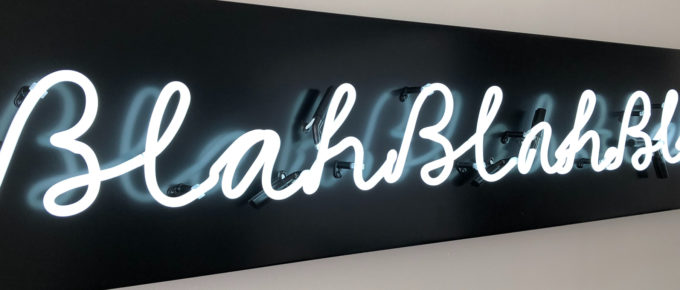I have a singular aversion to buzzwords. It is powerful, it is visceral and most of the time it exists on a hair trigger. There are certain words and terms that I avoid using except when absolutely necessary. Their use by others produces in me suspicion and mistrust. I have more-or-less acknowledged this reality for a long time, but I only recently took a moment to stop and ask myself why I react this way. It was an interesting reflection.
How Do You Answer “What Do You Do?”
An enduring question when encountering a new acquaintance is, “What do you do?” (This is especially true if you live in North America). Answering that question—particularly if you want your answer to be compelling and memorable—can be hard. The safe answer is to go with a functional description of what you do. Even comprehensive statements of job function can sound still sound vague and abstract (and be in no way unique). When you want to stand out in your answer, you need to reframe how you define the question.
Intersections, Boundaries and Barriers
My thinking about notes has hit a bit of a wall. I thought that might simply be the normal resistance to change and shifting to a radically different way of working. As it turns out, there are some larger underlying problems that remain unresolved that my subconscious has clearly been wrestling with. The theoretical simplicity of the slip-box hides some potential complexities as I start to consider its actual practical application. This might just be a product of the kind of work that I do and how I approach it. I’m not wholly sure of that, however, so in the interests of radical disclosure I’m sharing my thinking process.
Finding and Deriving Simple Models
Models are how we make sense of the world. We tend to do far better with simple models that provide specific insights, rather than grand theories that attempt to reduce everything down to a single, unified perspective. The challenge is how to identify relevant models, and build an inventory that makes sense for us and our experience. Some models are generic and broadly applicable. Others are specific and focussed. Some models you will be introduced to, others you will discover and some you will build. In all instances, it’s about knowing the meaning you need to create and the perspectives that matter.
A Room Of One’s Own
We don’t do our best work under pressure. Stress and productive creativity are poor companions at the best of times, and particularly now. While our current circumstances may not be optimal, that doesn’t mean that we can’t find the physical, mental and metaphorical space to function. It just needs a little work to define, and a little more effort to negotiate and make happen.
How To Get Clear On Priorities
Getting clear about what you are are doing and where you are going is incredibly valuable and important. It’s also very challenging to do. The greater your ambition, the longer the list of things that you dream of getting done. The more that you care about delivering quality results, the more essential it is to get focused about where you invest your effort and attention. That involves difficult choices that most of us very` often don’t like acknowledging, let alone actually making.






